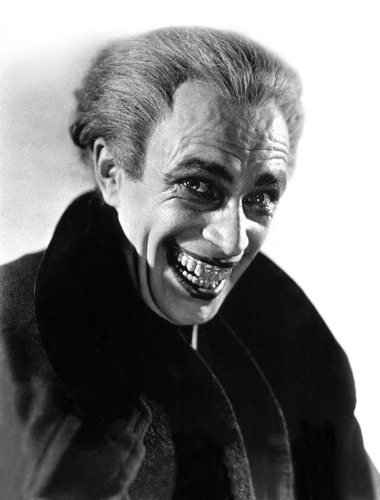BRATTLEBORO — On Friday, Sept. 22, at 8 p.m., the downtown nonprofit arts center Epsilon Spires, 190 Main St., presents Ben Model performing a live musical score on the historic Estey organ to the silent film The Man Who Laughs.
Model is an organist who regularly performs musical accompaniment to silent films at MOMA and the Library of Congress. He is one of the top 20 most-celebrated silent film accompanists in the United States, and Epsilon Spires organizers say they are "honored to have him return for his fourth appearance."
Model was recently featured in a video piece in The New Yorker and has previously written in his blog about playing Epsilon Spire's Estey organ, which was built here in Brattleboro,.
The 1928 German-Expressionist film is based on Victor Hugo's tragic tale of wrongful persecution and wrathful anger and features the original performance that inspired the DC Comics character, "The Joker."
Before the character appeared in the Batman comic book series, there was The Man Who Laughs, a thrilling, dreamlike and visually striking historical melodrama, packed with political intrigue and emotionally complicated characters.
Conrad Veidt stars as Gwynplaine, who, as a child, was disfigured with a "permanent smile" at the cruel command of King James II - a punishment carved onto the boy's face for his Scottish father's political dissidence from the British crown.
Ostracised, Gwynplaine joins a carnival sideshow and rescues and befriends Dea, an innocent blind girl who is not aware of his scarred features but loves him for who he is. However, their lives of contentment living at the fringes of society become threatened by an unexpected confrontation with Gwynplaine's troubled past, forcing him to confront his urge for revenge.
Gwynplaine's grotesque grin was achieved with prosthesis. Veidt was fitted with a set of dentures that had metal hooks to painfully pull back the corners of his mouth, and he couldn't speak when the dentures were in. The distinctive tortured look and the pathos and suffering behind the antihero's backstory are cited as a major influence for the American comic book creators of Batman's grinning nemesis, "The Joker."
"Veidt's extraordinary performance, and the film overall, however, deserve to be celebrated for far more, and as a work of art in itself," Spires staff say in a news release. "The darkly gripping story is propelled by director Paul Leni's masterful visual style, whose pacing rewards us with intrigue and excitement at every surprising turn."
Model, carrying on a tradition he learned from the silent film organist Lee Erwin (1919–2000), is a resident film accompanist at the Museum of Modern Art in New York City as well as at the Library of Congress' Packard Campus Theatre. He also performs at theaters, museums, schools, and other venues around the United States, as well as internationally.
Over the past four decades, he has created and performed thousands of live scores for several hundred silent films and has performed at many classic film festivals. He has composed film scores for both orchestra and concert band for accompaniment to films featuring Charlie Chaplin, Buster Keaton, Laurel & Hardy, and more.
Tickets are available by sliding-scale at epsilonspires.org.
This The Arts item was submitted to The Commons.
